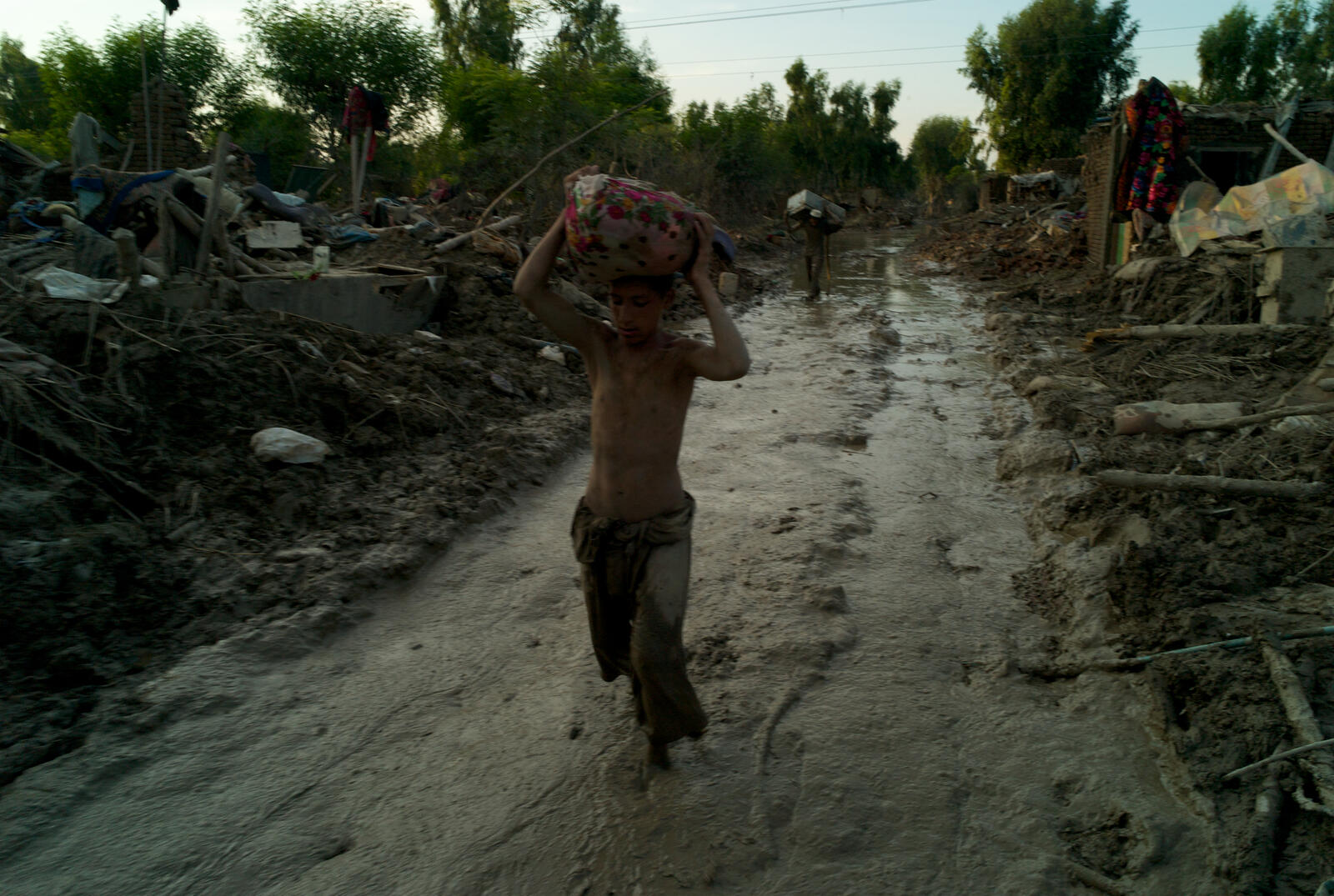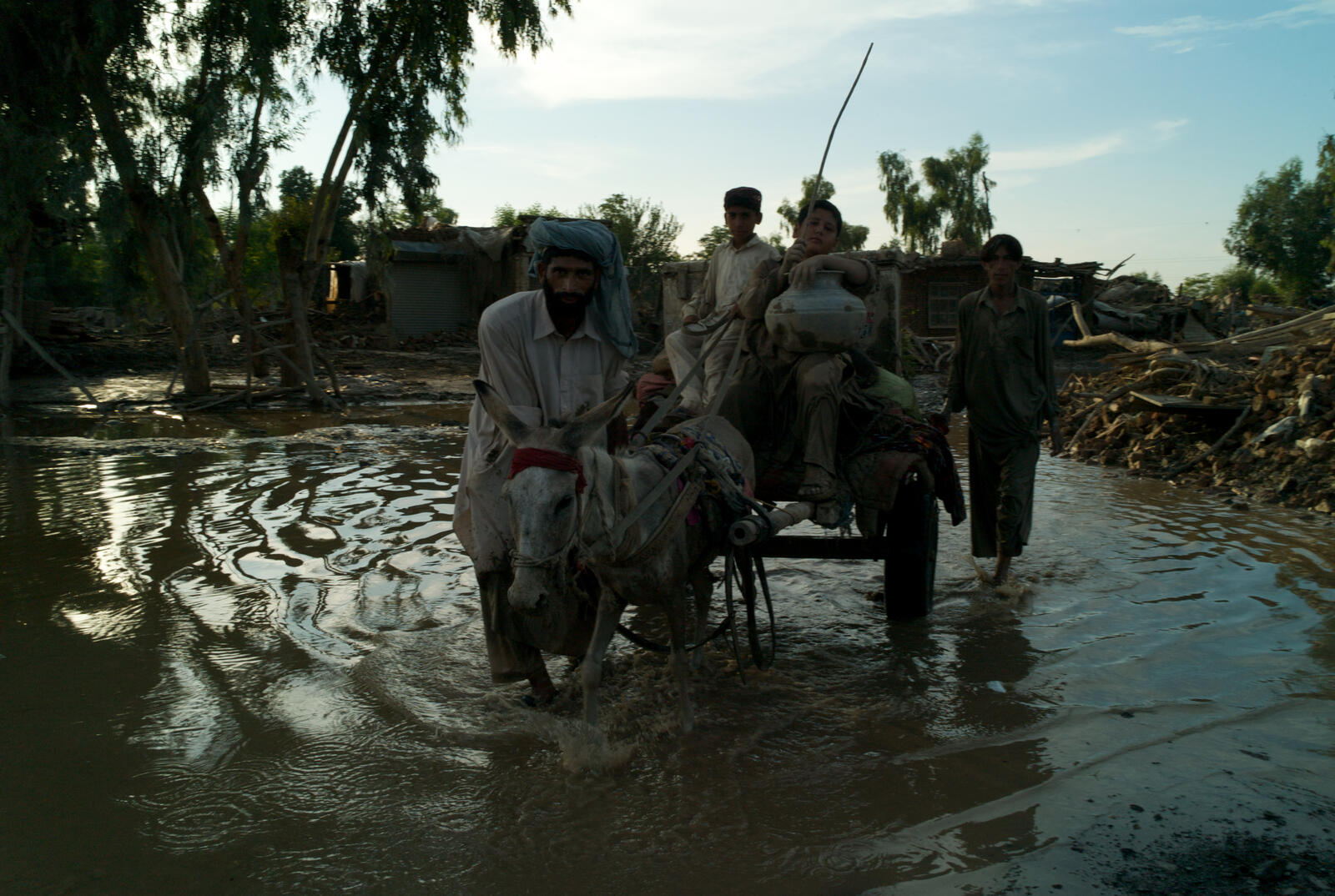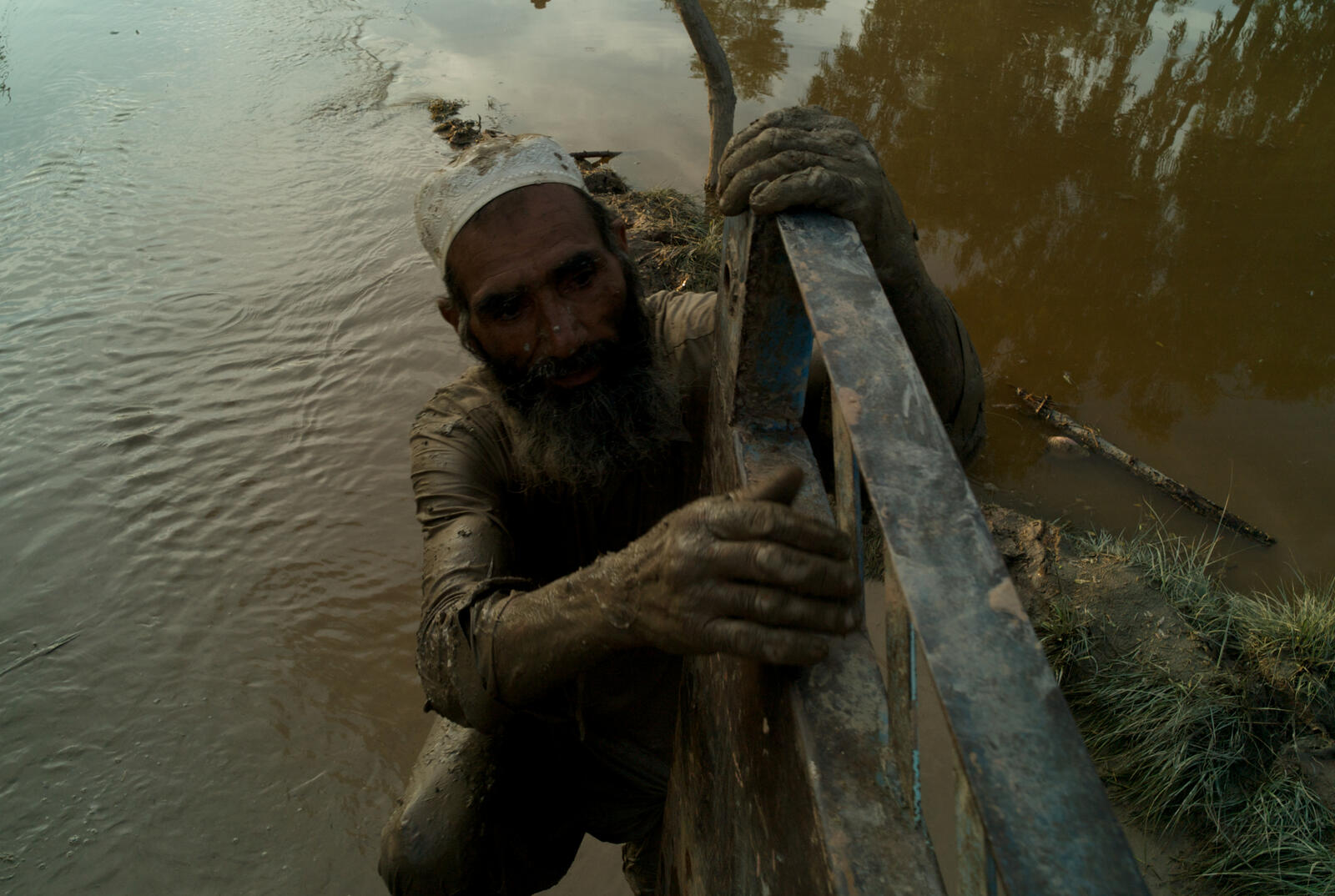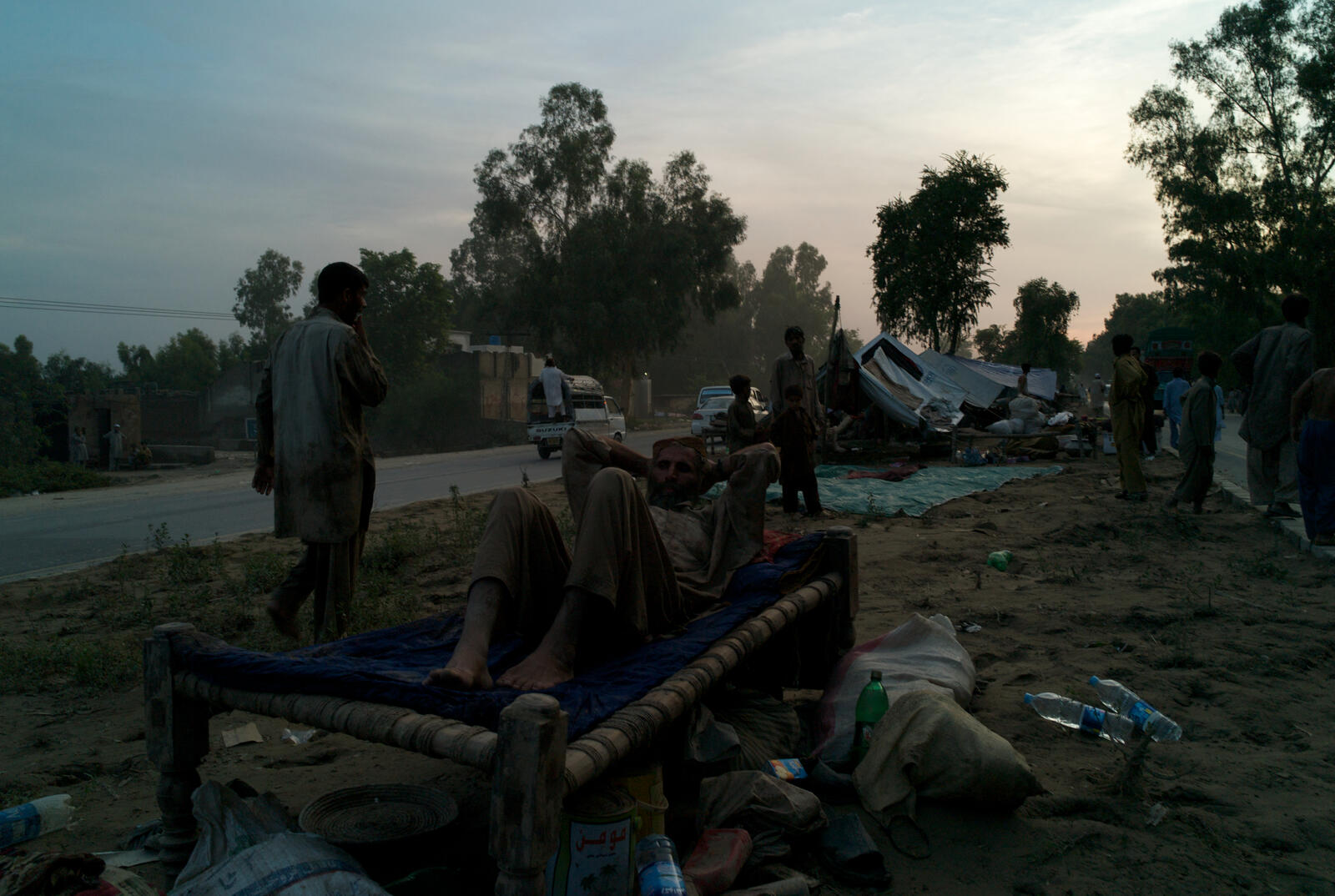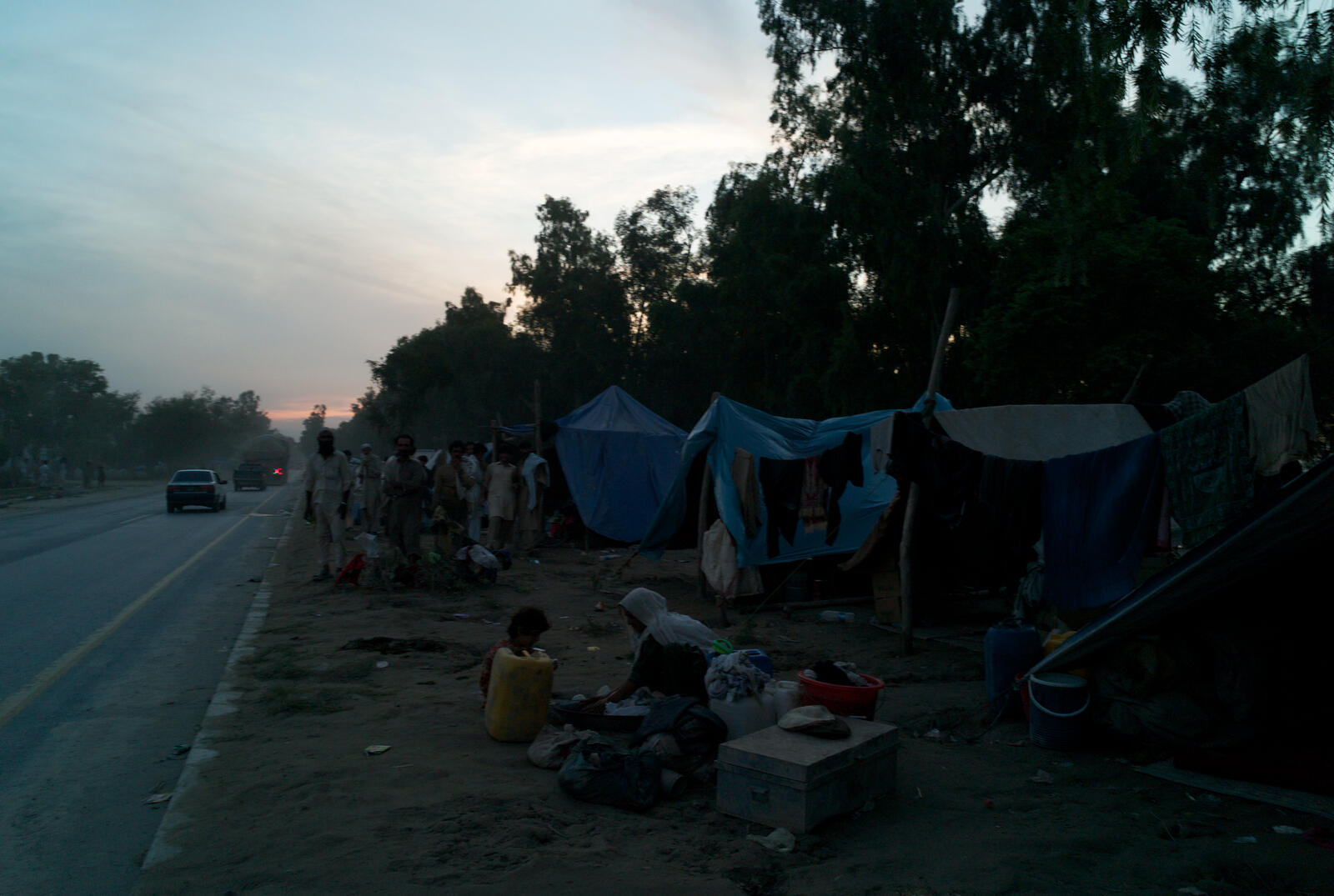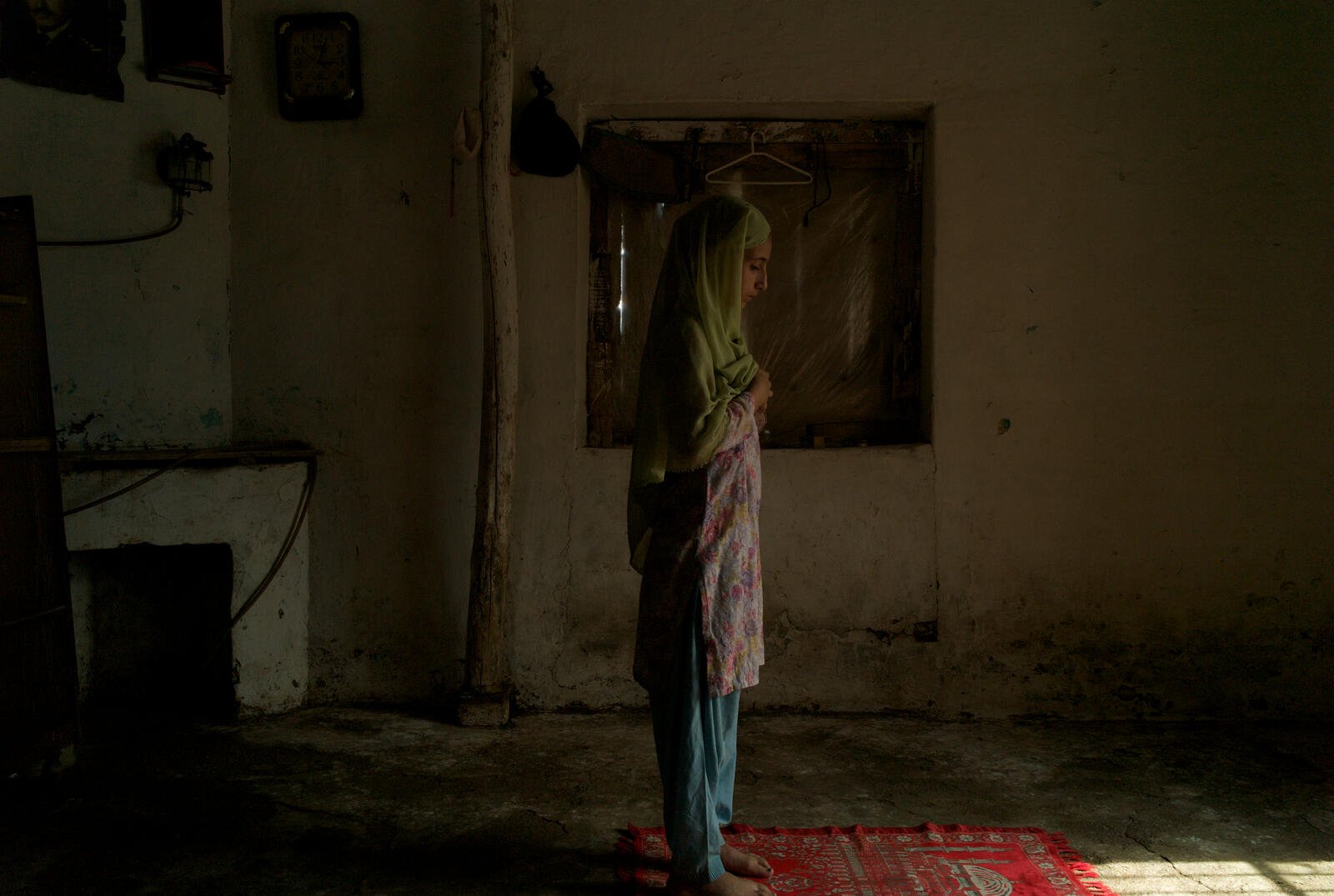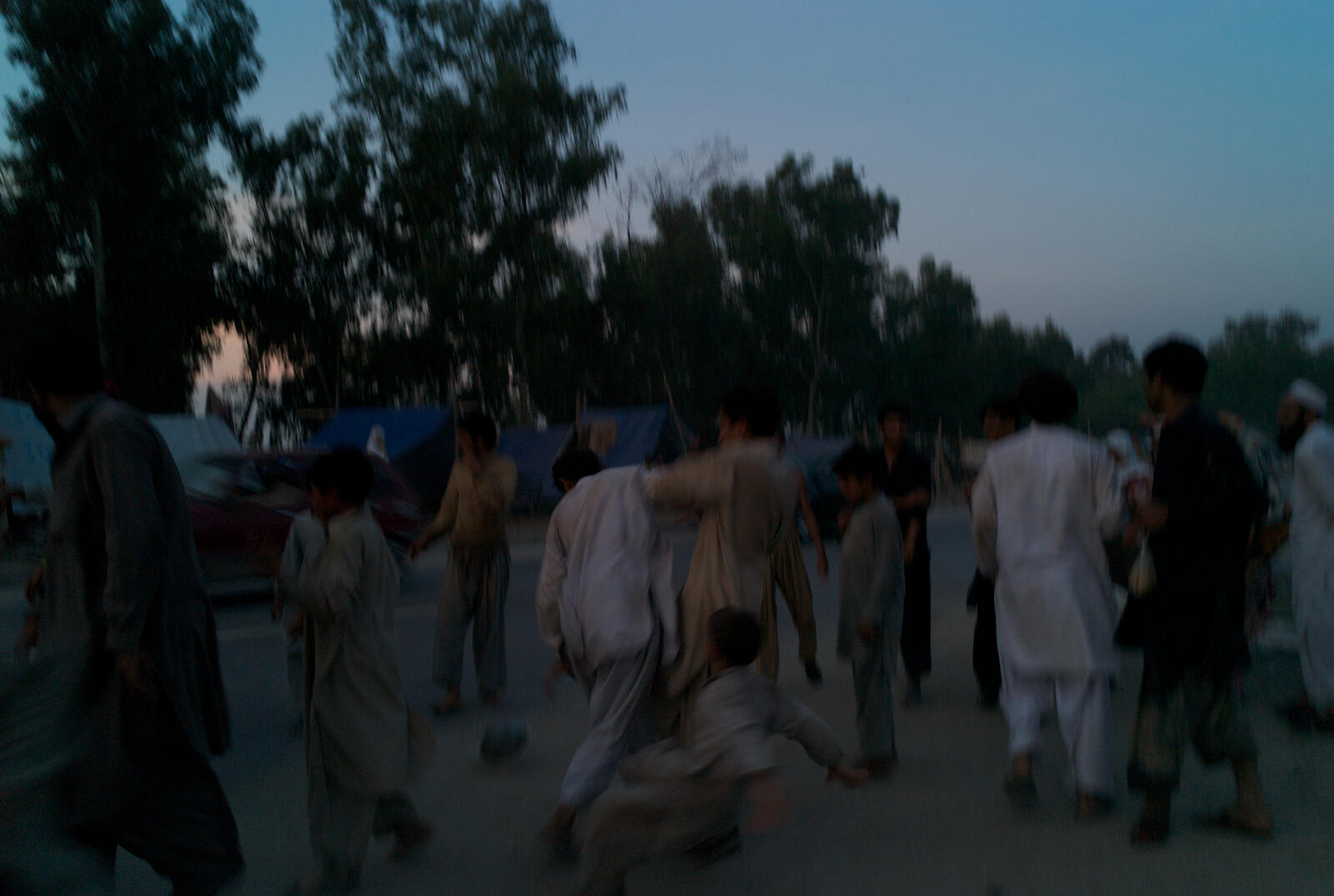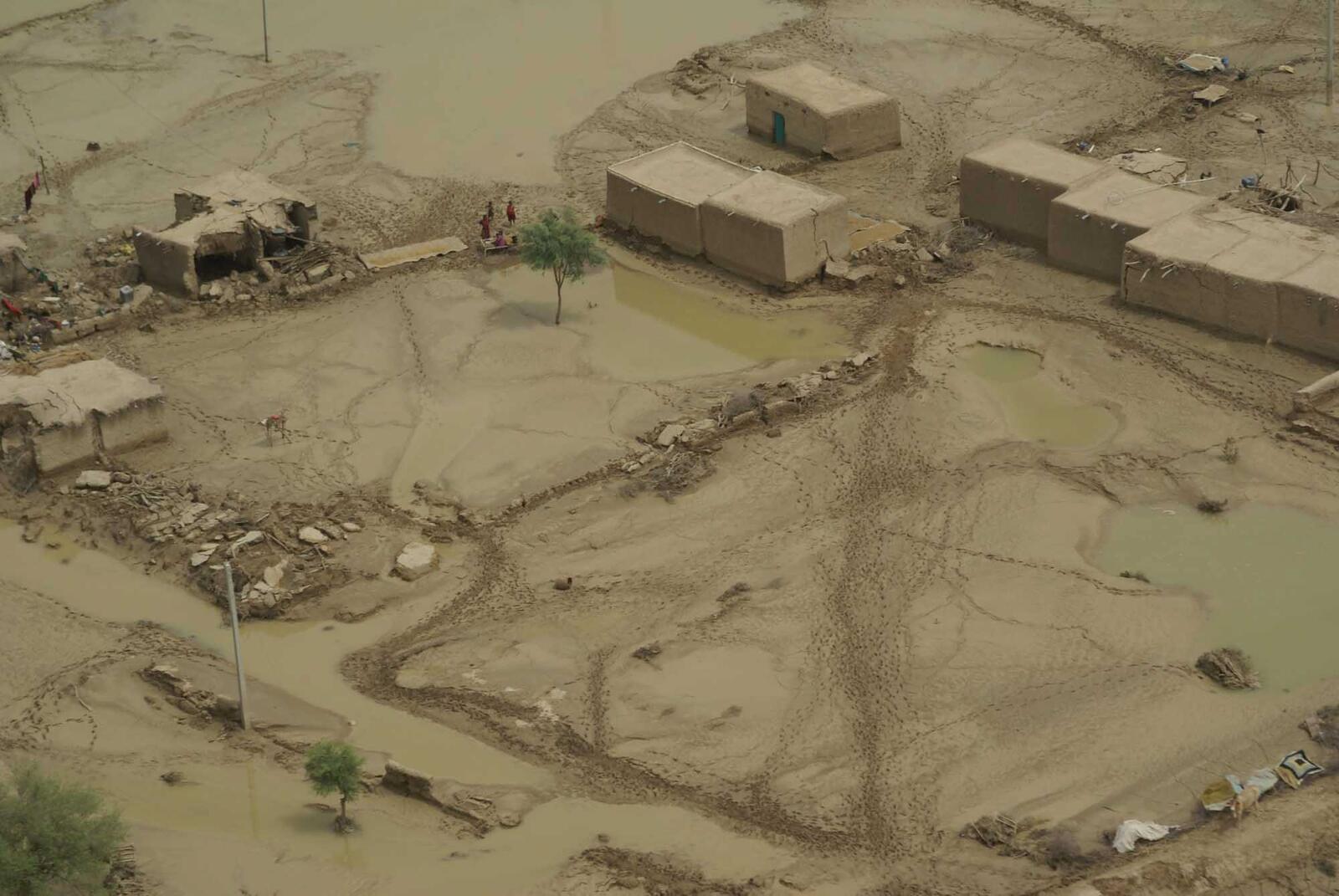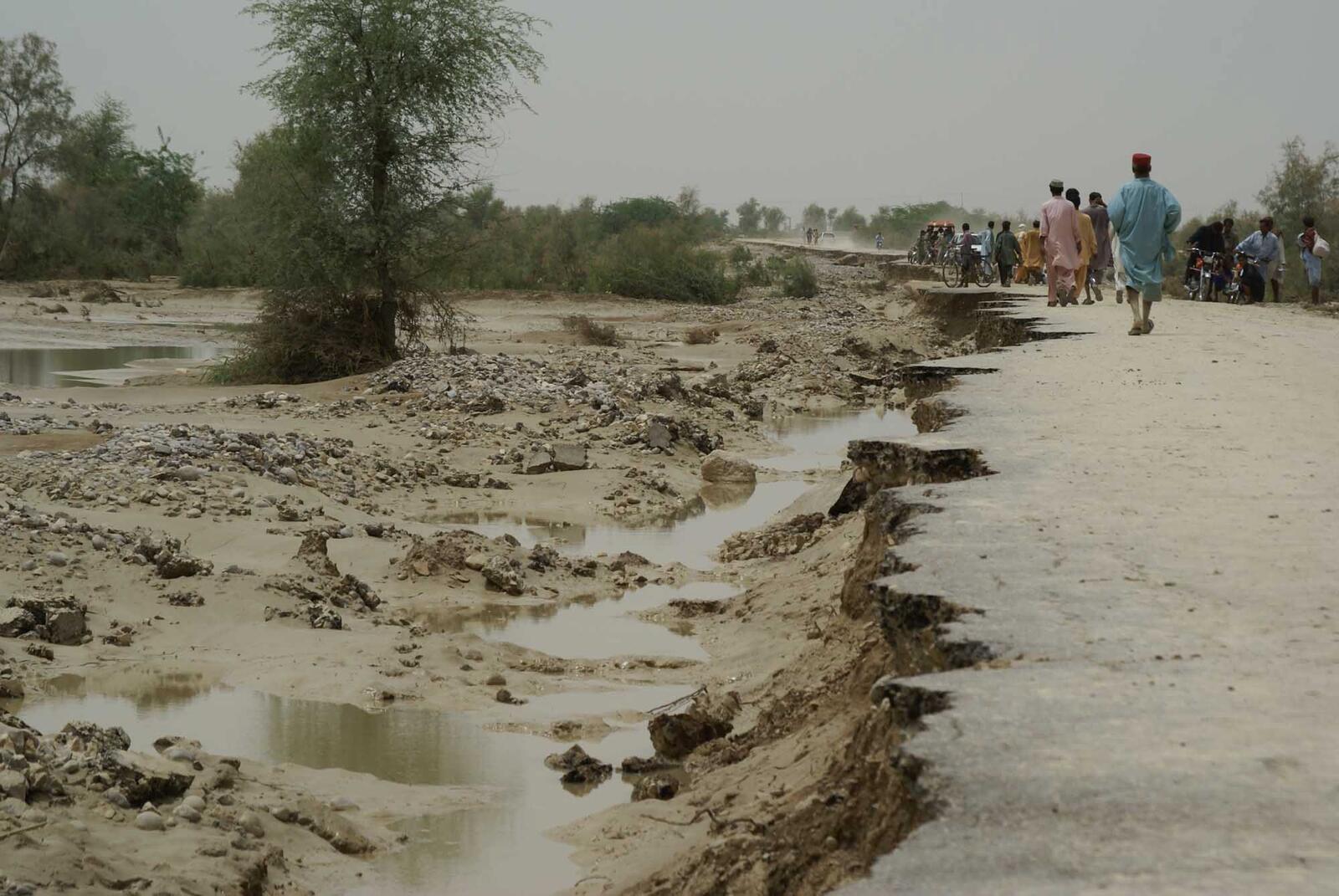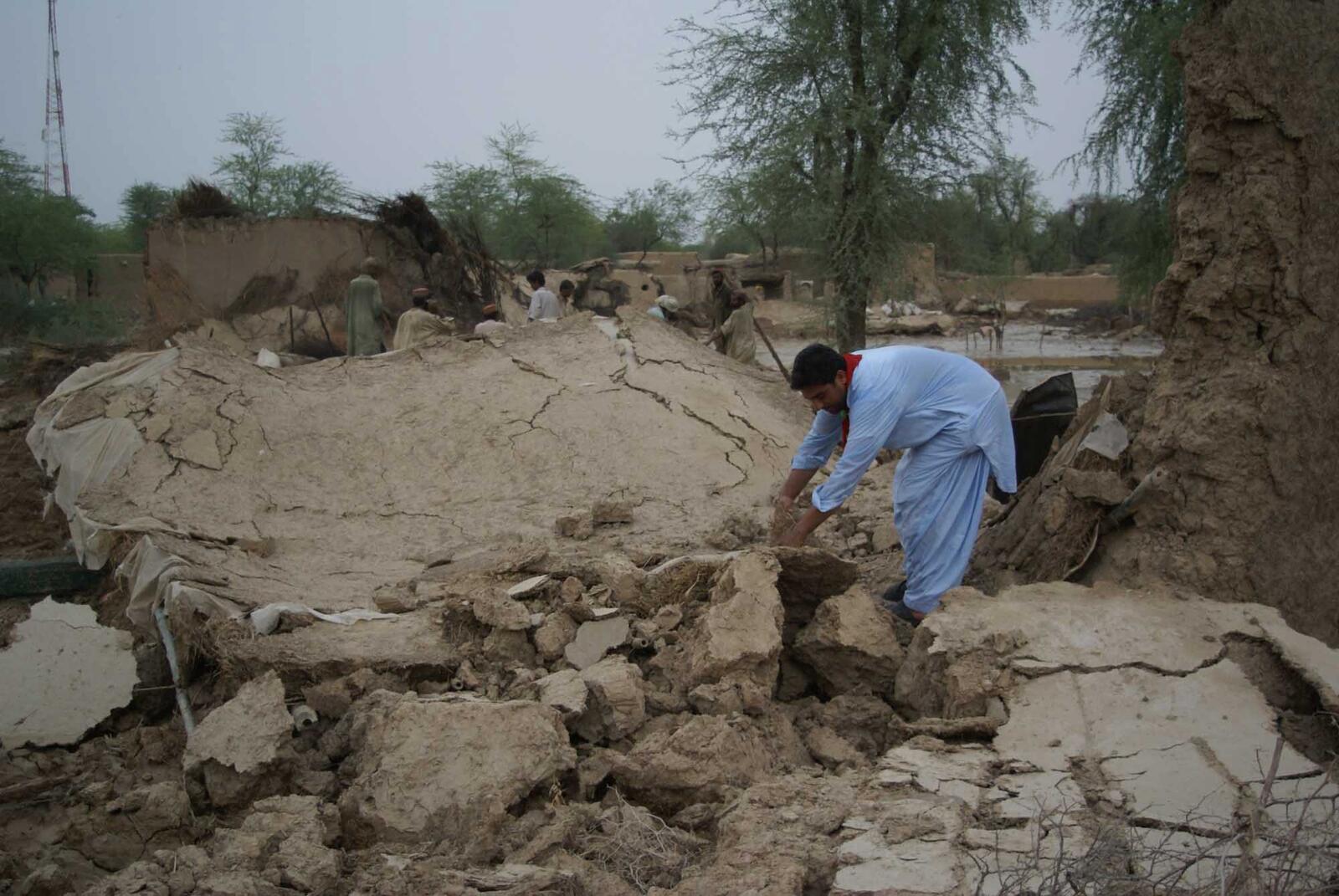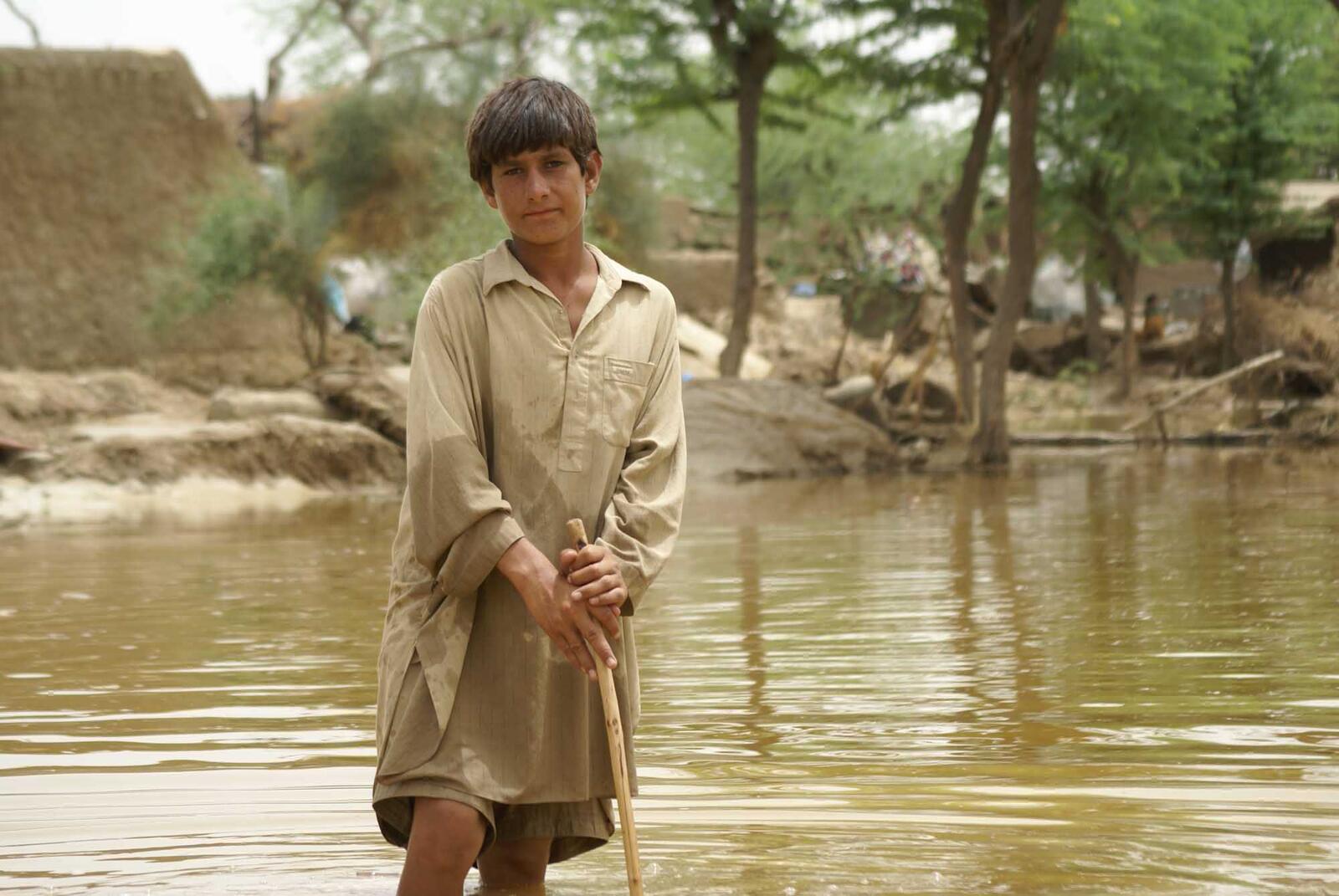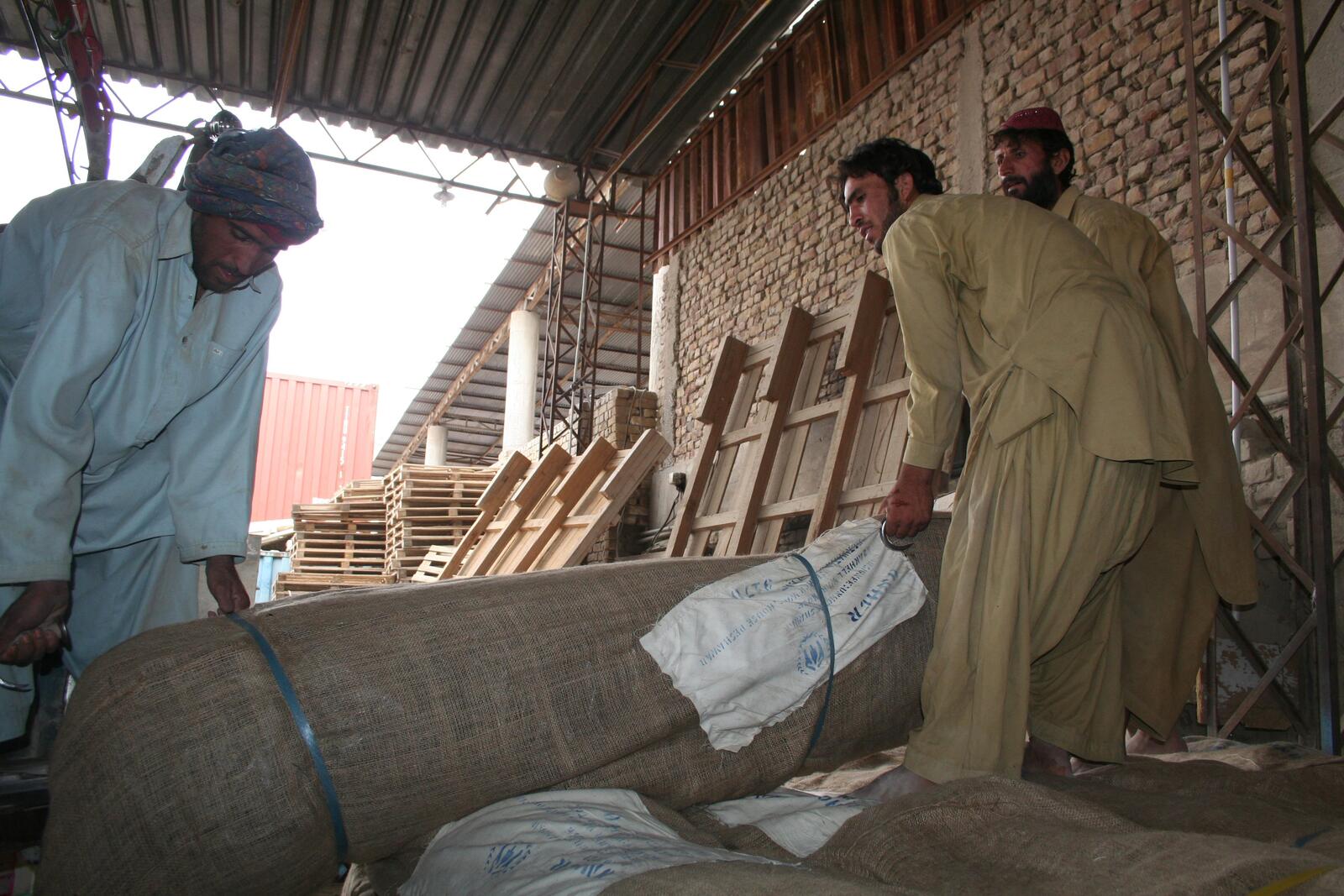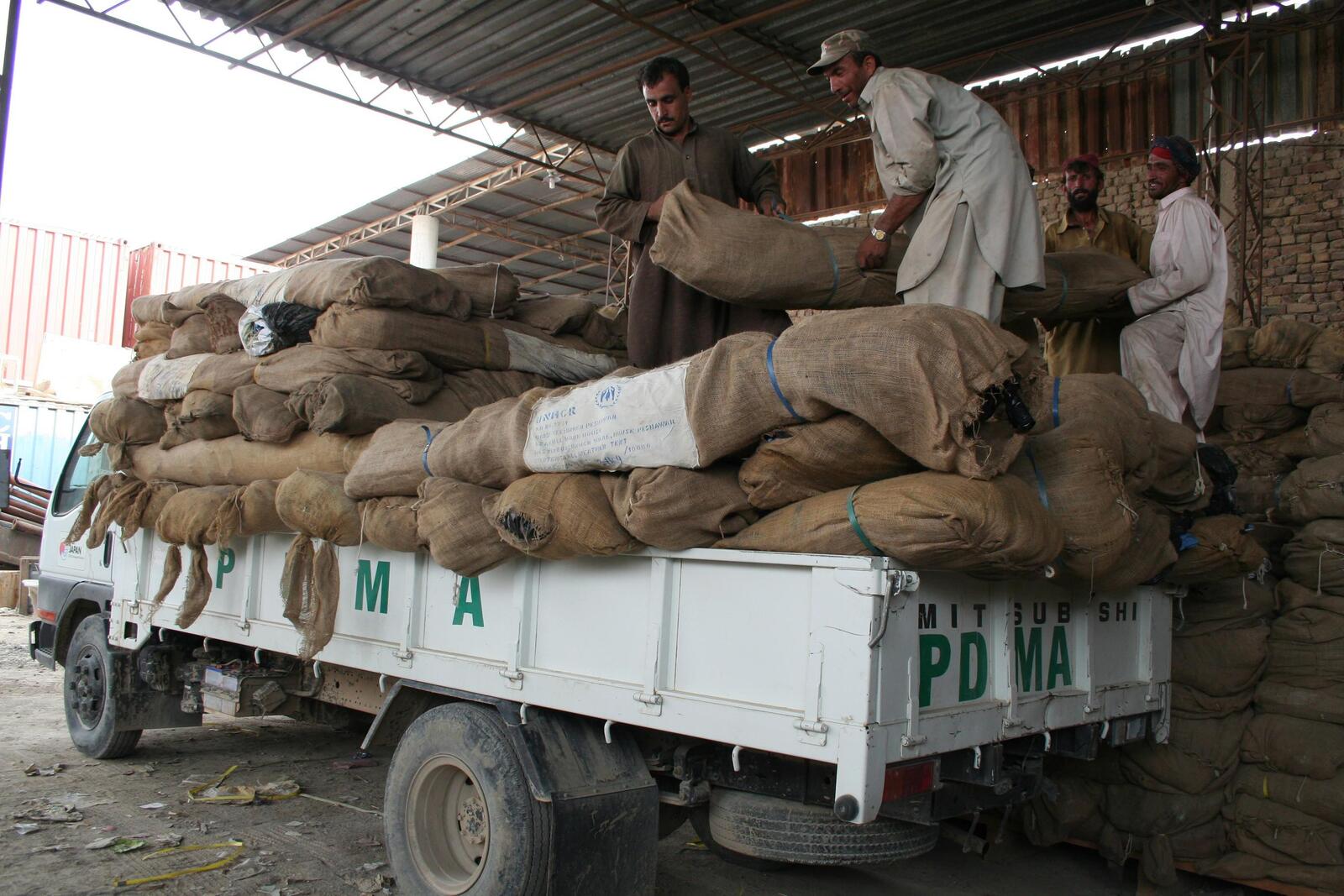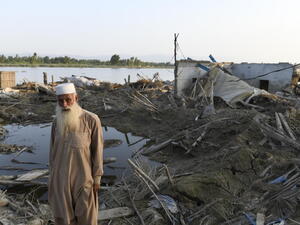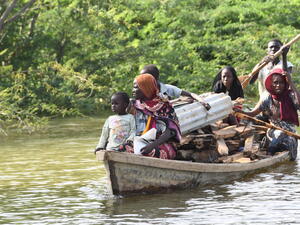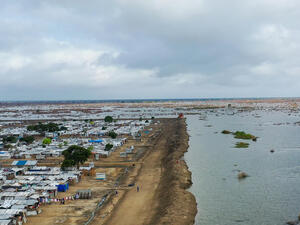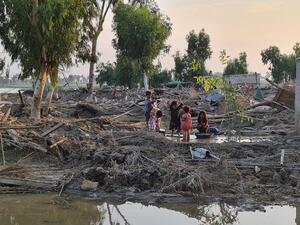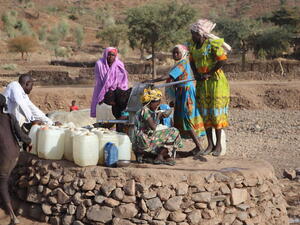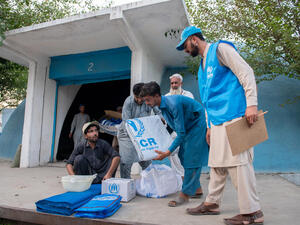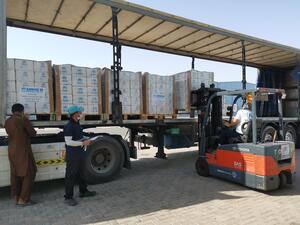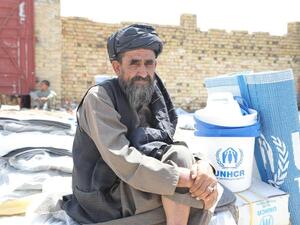Waters continue to rise in Pakistan
Waters continue to rise in Pakistan
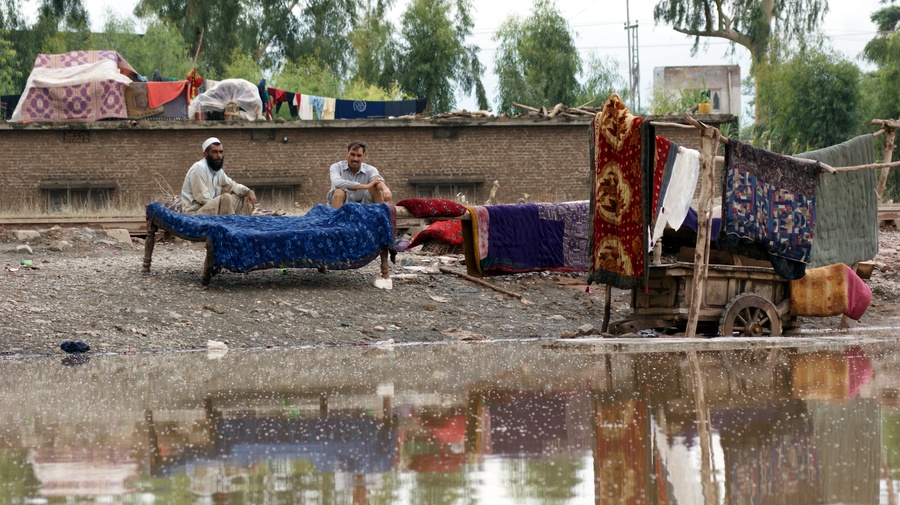
Flood survivors and their salvaged belongings at a makeshift camp site near Peshawar.
Islamabad, Pakistan (UNHCR) - Monsoon rains continue to sweep across parts of Pakistan. According to UNHCR's local partners on the ground, rain is falling again in northern areas of the Swat Valley in flood-affected Khyber Pakhtunkhwa Province.
The bloated Swat river has burst its banks, inundating the rich agricultural region around Barikot. Of some 25 bridges in Swat, we have reports that 22 have been washed out as flood waters wash downstream towards the Kabul and Indus rivers.
In Sindh Province, Pakistan government officials have reportedly ordered the evacuation of villages along the Indus valley. Authorities said they have set up 400 relief camps for those evacuated and are using 30 boats to help evacuations. Authorities in Sindh Province have warned that major floods are expected on Saturday and Sunday.
UNHCR contacts on the ground in Barikot report that there are shortages of food and medicine. Power and gas supplies have been cut. In many areas, mud in the wells has spoiled the drinking water supply as well.
Monsoon-affected people have told UNHCR teams how they fled their homes as they were hit by walls of water. Tens of thousands of homes have been destroyed or badly damaged. Even those that survived the deluge are filled with mud, their furnishings destroyed. Families have lost their food stocks, livestock and personal possessions.
According to the Pakistan government's Federal Flood Commission, more than 248,000 homes have been destroyed or damaged and 1.38 million acres (558,000 hectares) of crop land flooded across Pakistan.
At least 10,000 cows have drowned over the past eight days.
Akbar Ali, 50, is a carpenter in the village of Utmanzai. His home as well his all his carpentry tools vanished in the flood water. " I do not have money to buy (them) again and restart my work".
Tenant farmers who have lost their homes fear that their landlords will never rebuild them, or that they will put off construction until their own homes have been rebuilt, forcing the farmers to live under UNHCR's tents and plastic sheeting for the foreseeable future
"We have no place to stay," one woman now living in a school near Peshawar explained to a visiting UNHCR field team. "We are in this school but once it opens after the summer break what will happen to us? Where will we go?"
The UN Refugee Agency is initially aiming to support more than 350,000 of the most vulnerable among the flood-affected population in Pakistan and is appealing to donor countries and the general public for $21 million US to do so.
With many hundreds of thousands of people having no adequate shelter, food or water, and key roads and bridges cut off, government departments and aid agencies are in a race against time to reach affected communities.
Across Pakistan's Khyber Pakhtunkhwa and Balochistan provinces, more than 12,000 UNHCR tents have so far been distributed along with thousands of other relief items such as plastic tarpaulins, blankets, jerry cans and kitchen sets as part of a coordinated response effort involving the government, UN and NGOs.
On Saturday, August 7, UNHCR will receive supplies donated by the Saudi Fund for Development including 25,000 tents, 380,000 blankets, 126,000 plastic tarpaulins, 100,000 mattresses and 25,000 kitchen sets as well as 20,000 food parcels for Ramadan.
UNHCR's relief items are being distributed by carefully selected partner charities including the Community Motivation and Development Organisation (CMDO), Sarhad Rural Support Program (SRSP) and the Centre for Excellence in Rural Development (CERD) as well as central government and provincial partners.
In addition to tents and plastic tarpaulins, the UN Refugee Agency is distributing cooking sets, blankets, sleeping mats, jerrycans and buckets. Some displaced families have set up makeshift tented camps using donated aid supplies on the median strip along the Islamabad-Peshawar highway adjacent to the swirling Kabul River.
UNHCR's main mandate is protecting refugees, but the organisation has always positively responded to the call for humanitarian assistance for the local population of Khyber Pakthunkhwa and Balochistan. Living in Pakistan's monsoon-affected communities are some 1.5 million Afghan refugees who have taken shelter in Khyber-Pakhtunkhwa and Balochistan over the past three decades and an estimated 700,000-plus people dispaced by fighting in the Swat Valley and other areas last year.
Some 5,000 Afghan families are affected in one camp known as Azakahel. The camp is still under water with very little possibility of distribution of household assistance. In coordination with Afghan refugees, UNHCR is negotiating with Afghan refugee elders for possible relocation to another camp within the area. So far, 1,000 families have agreed to relocate, while the remaining expressed concerns about their security. 4,000 tents and 4,000 plastic sheets are to be distributed to affected population.
By Peter Kessler in Islamabad


